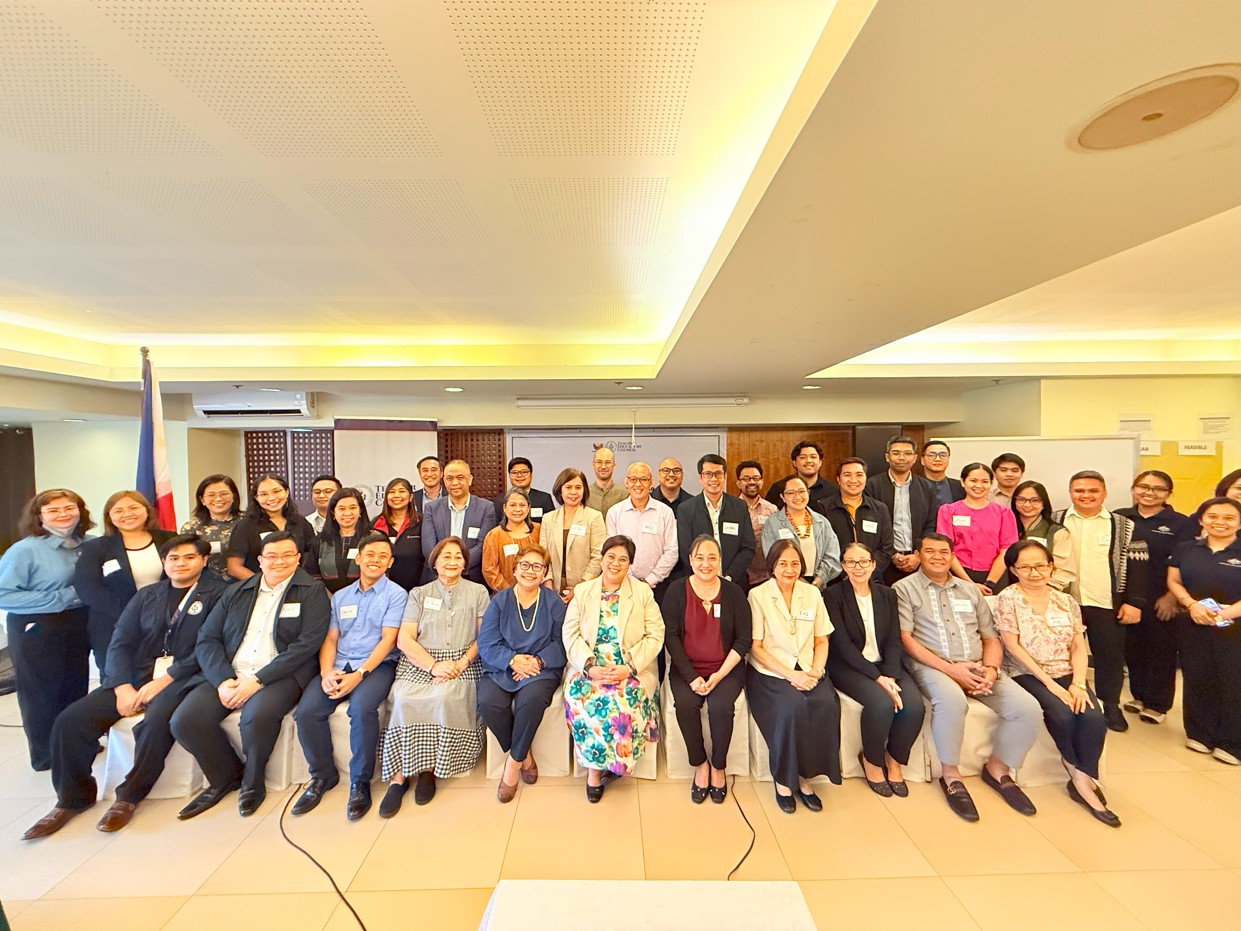
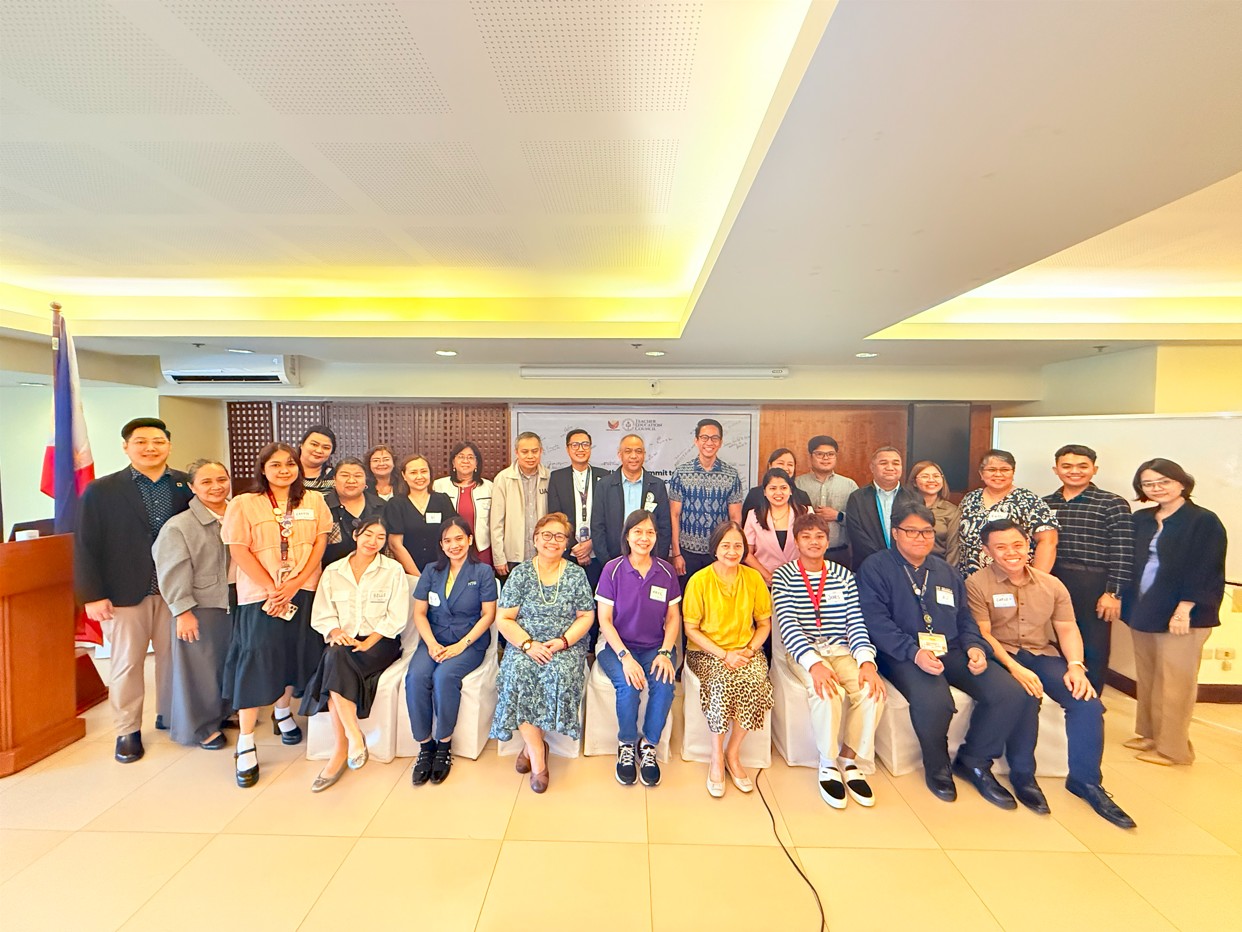
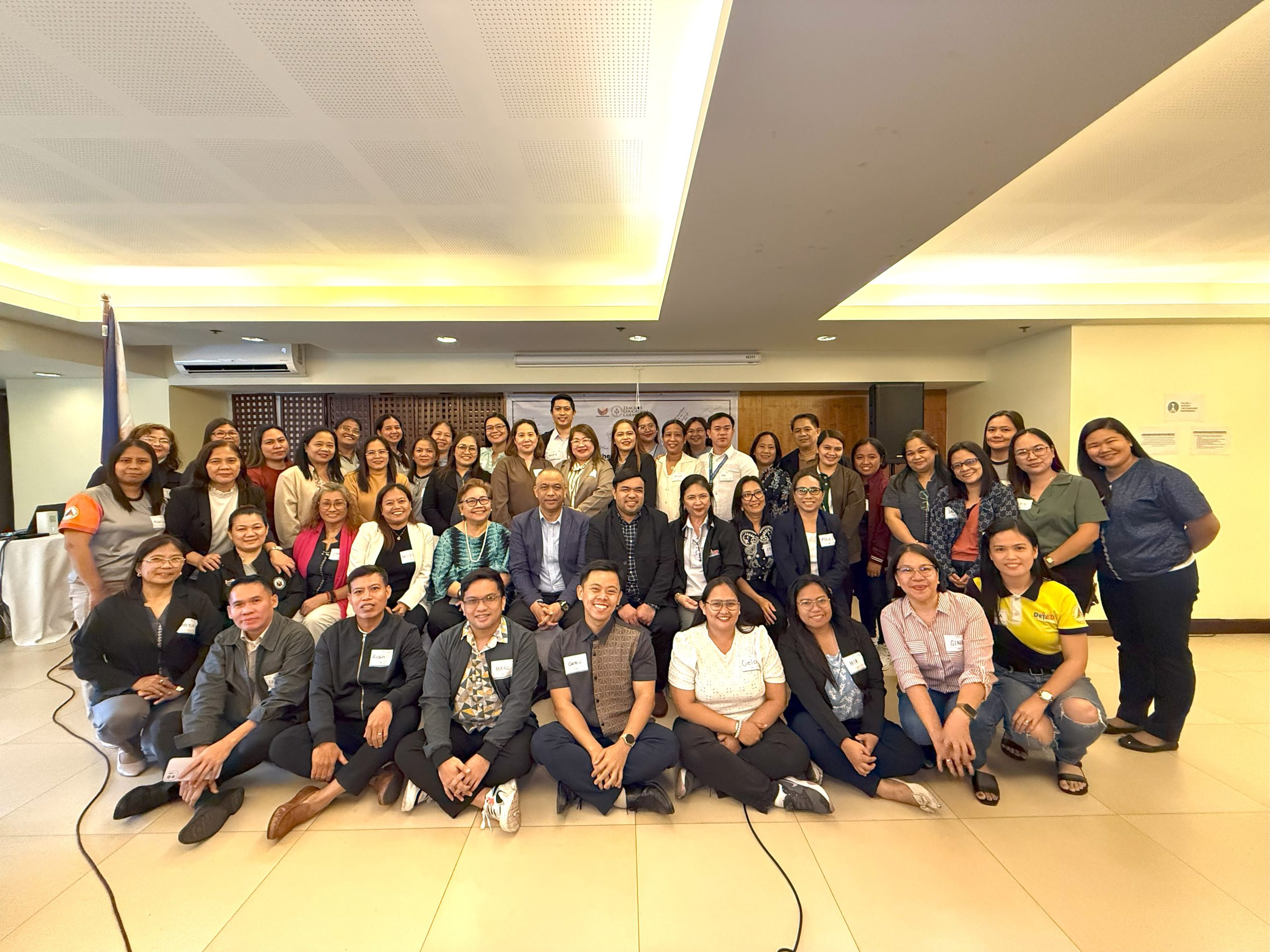
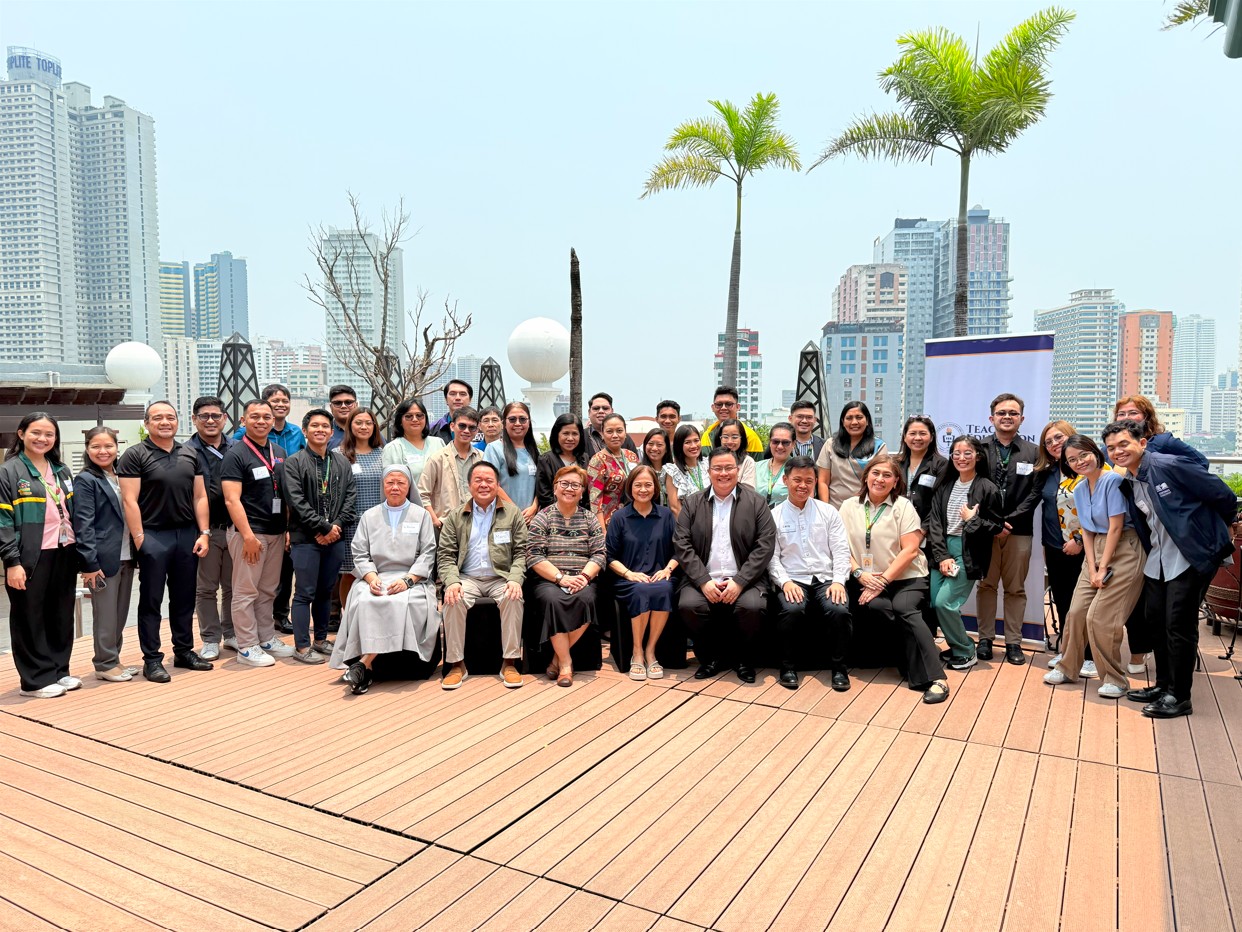
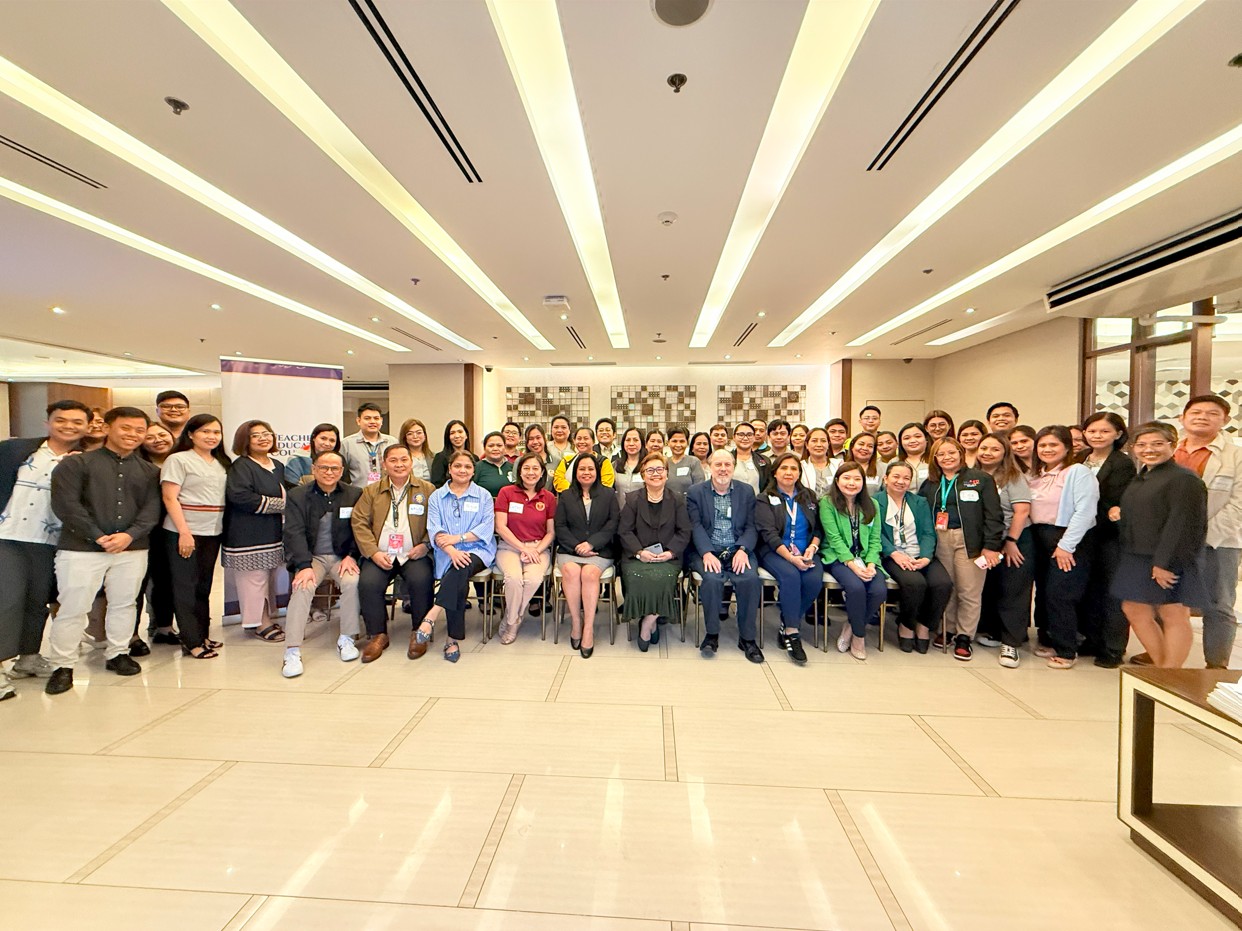
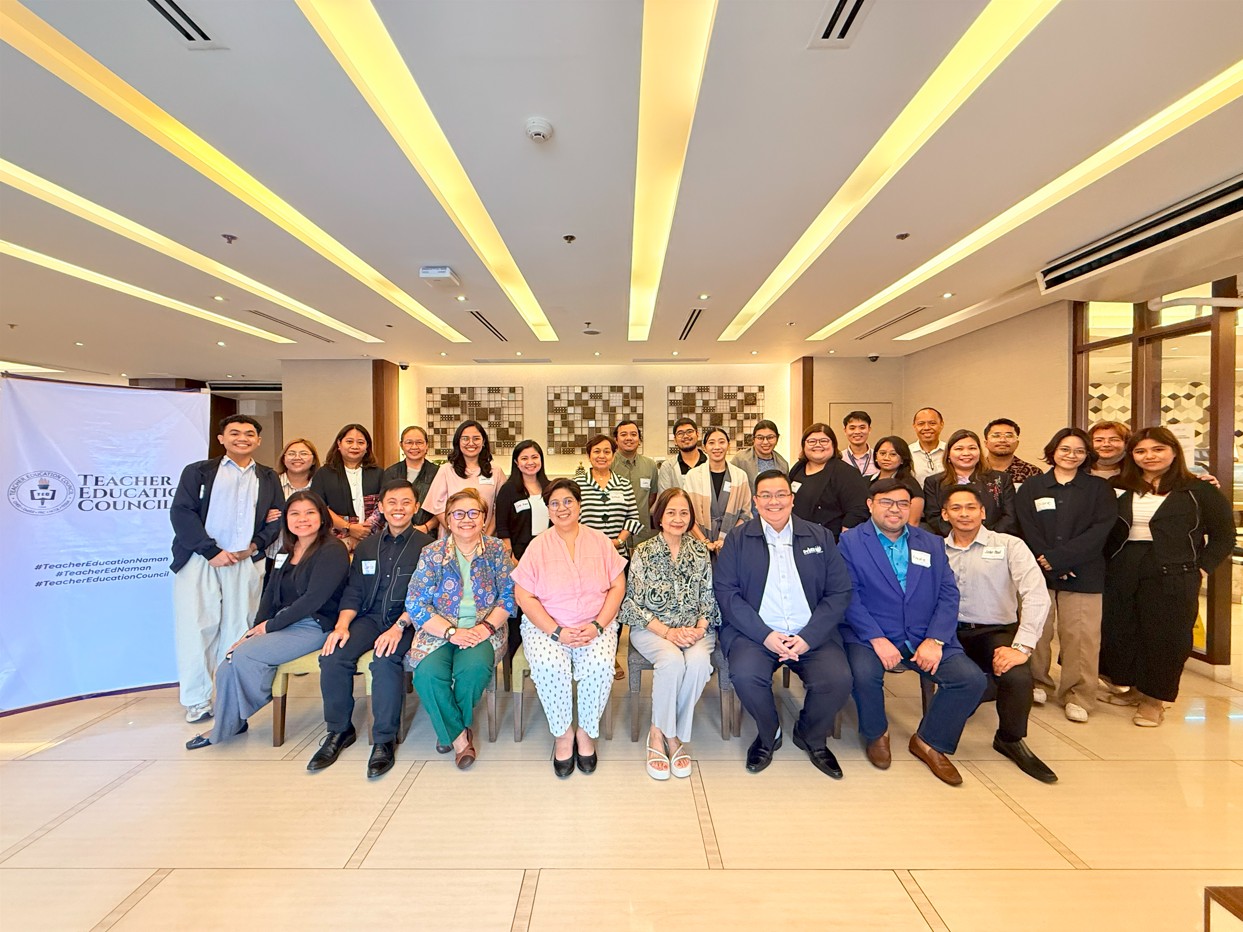
Following a week of major education milestones, the Teacher Education Council (TEC) is moving decisively to advance the Teacher Education Roadmap 2025–2035, a decade-long strategy that serves as a guide to design relevant, responsive, innovative, creative, and collaborative programs to advance teacher education in the Philippines.
The Roadmap highlights a coordinated effort to build strong foundations for quality learning through strategic investment in teacher development. It also aligns with education priorities highlighted in two (2) major activities that happened last week: President Ferdinand R. Marcos Jr.’s affirmation on education as a national priority in the 2025 State of the Nation Address (SONA) and the launching of the Department of Education’s (DepEd) Quality Basic Education Development Plan (QBEDP) 2025-2035.
The Roadmap answers the national call – focusing on ensuring that those who teach are just as well-prepared, supported, and empowered as those who learn. Led by Dr. Jennie V. Jocson, Executive Director V of the TEC Secretariat, the initiative underwent initial validation from July 29 to 31 and August 5 to 7 through a series of workshops with various stakeholders. It represents TEC’s direct response to align policies, standards, and programs across the entire teacher development continuum, from pre-service education to in-service professional growth.
A Roadmap Co-designed by Teachers and Various Sectors
During the validation workshops, representatives from international development partners, national government agencies, teacher education institutions (TEIs), elementary schools, high schools, Alternative Learning System (ALS) teachers, Special Needs Education (SNEd) teachers, Early Childhood Care and Development (ECCD) child development workers, civil society, and education non-government organizations convened to provide critical technical feedback to refine the proposed Teacher Education Roadmap.
“These are exciting times. We are trying to define what is appropriate in teacher education for the current generation and context. My insight is that education will continue to evolve. We will face challenges along the way, but there will always be people who will make things better,” said Ruth Alido, Director of the Curriculum Management and Instructional Materials Office at the Philippine Normal University (PNU), who participated in the validation.
She added, “I hope that the next generation of teachers will go ahead with it like how we are redefining the roadmap, how we are redefining the curriculum to make it more responsive and to make it more relevant and that’s something that teachers should commit to.”
In-service teachers welcomed the opportunity to be part of the Roadmap’s development and engage in the process that affects their profession.
“For the past seven years, this will be my first involvement in the development of teacher education [roadmap],” shared Judy Ann Padilla, an in-service teacher from San Jose Elementary School in Quezon City “Kami ‘yung nasa baba na nakararanas talaga ng firsthand involvement… As a teacher, ito na ‘yung lifelong journey ko — andoon na ‘yung passion and [I will] uphold the values and standards of teacher education.”
Likewise, international development partners who took part in the validation process expressed support for TEC’s direction and viewed the initiative as a model for coordinated education reform.
“I was very excited working with the TEC because over the past couple of years, they have achieved so much,” said Nicholas Tenazas, an education specialist from UNICEF Philippines. “It is rare for a small group to be able to navigate all the government regulations to function properly. We are really happy with the way that the stakeholders are coming together through the Council, so we look forward to supporting them in the coming years.”
Aligning with National Priorities
The Roadmap complements broader education reforms, including DepEd’s newly launched QBEDP 2025–2035, a 10-year strategy focused on improving learning outcomes, curriculum, leadership, and governance. These plans reflect a whole-of-system approach: QBEDP targets schools and learners, while the TEC roadmap ensures teachers are ready to lead change. Recent SONA directives, from easing teacher workloads to expanding support services, further align with TEC’s focus on well-being and accountability.
“Sa lahat ng mga pinahahalagahan ng Administrasyon, [edukasyon] pa rin ang nasa rurok,” President Marcos declared in his SONA, emphasizing the administration’s commitment to quality education. He furthered, “Hindi gagawing sukatan ng galing ninyo ang dami lamang ng estudyante na inyong ipinapasa, kundi ang dami ng mag-aaral na inyong pinapahusay.”
This national vision reflects that quality learning begins and is sustained by quality teaching – precisely what the Roadmap aims to strengthen.
With the initial validation now complete, TEC will integrate and consolidate the feedback in the coming weeks. The roadmap is expected to be completed by late 2025 and will serve as a basis for policy alignment, budgeting, and program design across implementing bodies.
With the education sector moving in a unified direction, the Roadmap anchors a shared commitment to elevate the teaching profession and align efforts with broader reforms.
The TEC extends its gratitude to the following agencies who attended the validation workshops from July 29-31, 2025, and August 5-7, 2025:
National and local government agencies
- Bangsamoro Autonomous Region in Muslim Mindanao – Ministry of Basic, Higher and Technical Education
- Commission on Higher Education
- Department of Education – Central Office
- Department of Education Schools Division Office of Angeles City
- Department of Education Schools Division Office of Makati City
- Department of Education Schools Division Office of Manila City
- Department of Education Schools Division Office of Quezon City
- ECCD Council
- Local Government of Quezon City – Education Affairs Unit
- National Commission for Culture and the Arts
- Technical Education and Skills Development Authority
- TESDA PAMAMARISAN
- Technical Panel for Teacher Education, CHED
International development partners
- Asian Development Bank
- British Council Philippines
- Department of Foreign Affairs and Trade – The Australian Embassy in the Philippines
- Education Development Center
- IDInsight
- SEAMEO INNOTECH
- UNICEF Philippines
Teacher Education Institutions
- Angeles University Foundation
- Centro Escolar University
- De La Salle University – Manila
- De La Salle College of Saint Benilde
- Philippine Normal University
- Polytechnic University of the Philippines
- Tarlac Agricultural University
- National Teachers College
- University of Asia and the Pacific
- University of Makati
- University of the Philippines Diliman – College of Education
Research centers and think tanks
- Assessment, Curriculum, and Technology Research Centre
- Research Institute for Teacher Quality
Private sector
- Philippine Business for Education
- Private Education Assistance Committee
- Private Sector Jobs and Skills Corporation
- Coordinating Council of Private Educational Associations
- Philippine Association of Colleges and Universities
Civil society organizations and non-government organizations
- AHA Learning Center
- Angat Buhay Foundation
- BDO Foundation
- BRAC International Inc.
- Catholic Educational Association of the Philippines
- FIT-ED
- Gokongwei Brothers Foundation
- Innovations for Poverty Action
- PCI Tech Center
- PLDT Gabay Guro
- Save the Children Philippines
- Teach for the Philippines
- World Vision Philippines
Basic education schools (Elementary, Secondary, ALS, ECCD, and SNED) from Angeles City, Makati City, Quezon City, and the City of Manila


